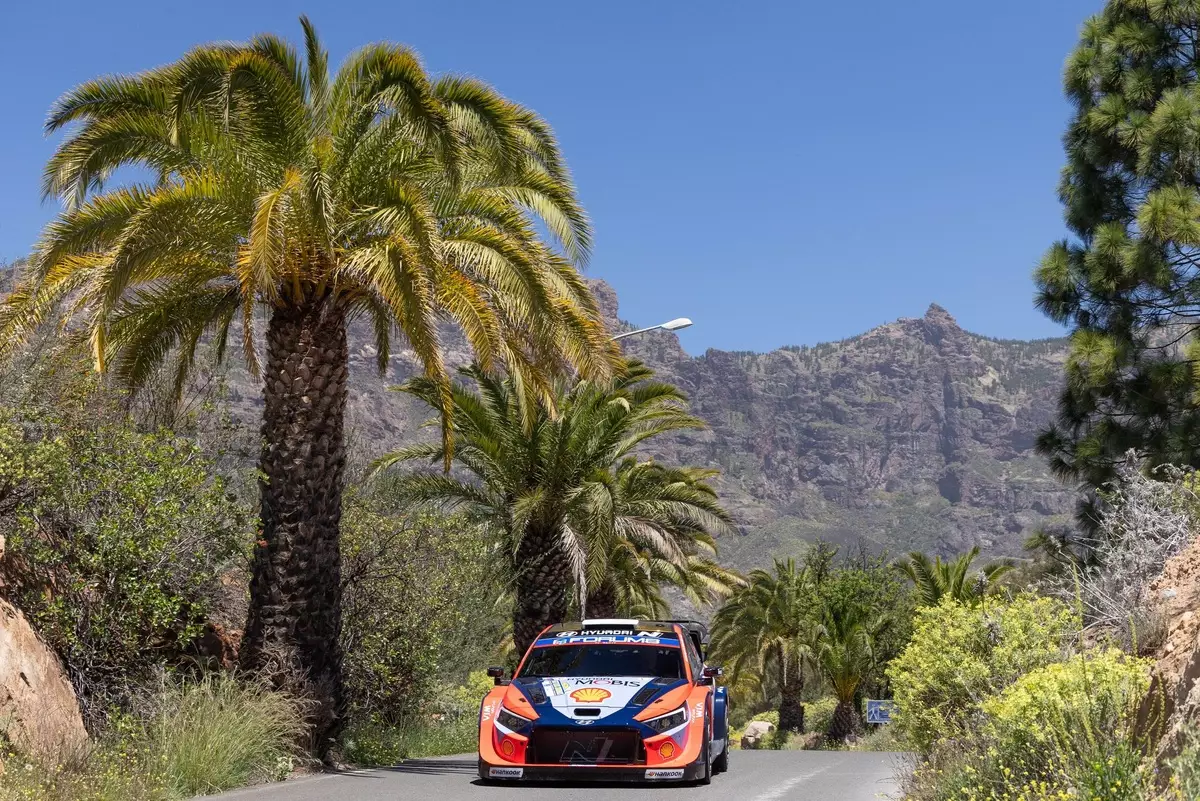Hyundai Motorsport faced a stark wake-up call during the Rally Islas Canarias, revealing the chasm between their performance and that of their rivals, particularly Toyota. This event, noted for its challenging pure asphalt surfaces, exposed the limitations of Hyundai’s planning and preparation. The ambitious aspirations that the team had nurtured, built on the promise of Thierry Neuville’s strong performance at Rally Sierra Morena, quickly dissolved into a sobering reality. It became evident that the team had significantly underestimated the complexities of competing in such a demanding environment, leading to a staggering failure in the face of a formidable Toyota lineup that swept the podium with a dominating 1-2-3-4 finish.
The rally unfolded as a brutal examination of Hyundai’s i20 N Rally1, with the machines exhibiting troubling handling issues that the team was ill-prepared to address. The troubling aspect of this failure was not just the loss itself, but the realization that Hyundai’s strategic and technical decisions had led them astray. The struggles with the hard compound Hankook tyres and the choice of differentials were amplified on the unforgiving asphalt, where every nuance in car setup plays a critical role. Such oversights underscore the necessity for rigorous preparation; without it, even a supposedly competitive car is rendered ineffective in high-stakes races.
Unforeseen Challenges and Underwhelming Responses
The admission from Hyundai that they were “clearly unprepared” for the event is a stark signal of their current predicament and a significant introspection point. Ott Tanak, a driver with ample experience and insight, articulated the essence of this failure, stating that the rally revealed fundamental issues within their car that could not easily be rectified. This is a critical moment for Hyundai as they confront the imperative to innovate rapidly while also acknowledging the shortcomings in their approach.
Moreover, the fact that Tanak and his teammates were unable to harness the full potential of their car, resulting in a testing atmosphere rather than a competitive rally, must serve as a catalyst for change within the team. As the event progressed, these problems morphed into an exercise in gathering data rather than actively competing, which is the antithesis of what teams strive for in a championship setting. Such disarray not only reflects poorly on the preparatory phase but also raises questions about team cohesion and strategic agility.
A Glimmer of Hope Amidst the Frustrations
Despite the setbacks and frustrations, there were hints of silver linings internally. Adrien Fourmaux, who diverged in his differential selection, managed to secure a fifth-place finish, demonstrating that there are pathways to improvement even amid adversity. His sense of camaraderie among teammates, as well as personal achievement within the team context, hints at the potential for growth and adaptation in future events. This possibility is bolstered by Fourmaux’s assertion that Hyundai has the resilience and proactive approach necessary to rectify their errors.
While the immediate fallout from the Canary Islands rally appears daunting, it is essential to recognize that this single event does not define Hyundai’s entire season. The Central European Rally could provide a more favorable surface and conditions for Hyundai to reassert themselves. However, the team will need to harness the lessons from this race with a forward-looking mindset to ensure that their shortcomings do not resurface in subsequent rallies. The pressure is on to recalibrate their approaches, refine their vehicles, and come back stronger.
Lessons Learned and the Path Forward
The Rally Islas Canarias serves as a critical teaching moment for Hyundai, reminding them that every detail matters in the pursuit of excellence. The acknowledgment of their lack of preparation and unsettling performance amidst fierce competition is undoubtedly a painful but necessary step toward evolution.
In navigating the intricacies of high-performance rallying, Hyundai must not only focus on their immediate strategies but also cultivate an atmosphere of continuous learning and adaptability. Their past achievements and the infrastructure they have built provide a sturdy foundation upon which they can rebound from this disappointing chapter. As they gear up for upcoming challenges, cultivating a culture that learns from failures and embraces agility will be essential.
The season is still very much alive, and Hyundai has the necessary tools and talent to turn this misstep into a stepping stone toward renewed relevance in the World Rally Championship.


Napsat komentář